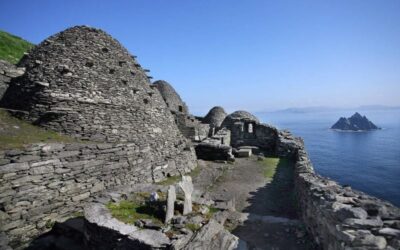“History is a vast early warning system.” —Norman Cousins
A Bit of History
Europe in the second half of the eighteenth century was a mess.
On the continent, a system known as the Ancien Régime (roughly, the Old Order) governed political and social life. Particularly in France, it was shot through with contradictions: France was the wealthiest country in Europe, but had an impoverished peasantry in many regions; it was the center of the Enlightenment, education, and culture, but also was full of illiteracy, ignorance, and superstition; it had a centralized bureaucracy and government, but it was also characterized by obsolete practices and local privileges that undercut central rule. Similar situations held sway in many other countries across Europe.
The Catholic Church was deeply intertwined with French society and government. Catholic clergy had special privileges, and Protestantism was illegal, with the million or so Protestants in France worshipping underground and subject to persecution. The clergy, the hereditary nobility, and wealthy, influential commoners who bought titles of nobility were exempt from most taxation despite being the wealthiest people in the kingdom. This left the full tax burden on the backs of the people least able to shoulder it.
On top of the ineffective tax system, France was facing a massive budget deficit, so much so that the country was teetering on the brink of default. Any attempt to reform taxation was met with opposition from powerful entrenched interests who argued that taxing them without their consent amounted to tyranny. Of course, no one had asked the peasants for their consent to taxation, but that was justified by an appeal to tradition.
The Enlightenment
The problems with the Ancien Régime were obvious, and the system was challenged by Enlightenment thinkers known as philosophes, a loose coalition of social critics who advocated the use of reason to solve societal problems in the same way that it solved problems in science. They were fiercely critical of the Ancien Régime and wanted to see the whole system overturned. Their ideas were spread through meetings in the salons of the progressive aristocracy, where witty banter was a critical skill: if you were not an entertaining conversationalist, you would not be invited back. As a result, the philosophes often specialized in satire and sarcasm since it is far easier to be amusing with criticism than with actual proposals to solve problems in society.
Voltaire
One of the most famous philosophes was François-Marie Arouet, better known by his pen name Voltaire. Like many other philosophes, Voltaire was a polymath who wrote poetry, plays, novels, scientific treatises, histories, and essays. He was an outspoken defender of civil liberties, including particularly freedom of speech and of religion. Although he is reputed to be an opponent of bigotry, he was selective in his opposition: his writings reveal strong racist, antisemitic, and anti-Islamic attitudes. He was especially critical of the Roman Catholic Church, which he viewed as a source of evil in France. Voltaire was known for his wit, and he made sharp use of it to satirize pretty much everything about French society and institutions.
Voltaire’s acid tongue got him in trouble with the French authorities, leading to his exile for a time in England. He later spent time in Prussia with Frederick the Great, in Geneva, and in Ferney, a village in France near Geneva. During all this time he avoided returning to Paris. Shortly before his death at the age of 83, however, he made the five-day journey to Paris to see the opening of his latest play. This great critic of the Ancien Régime was treated as a cultural hero by the people of Paris, strongly suggesting that his denunciations of French institutions and society had been internalized by the population of the city.
At this point, the French Revolution was inevitable. Its form was not, but once the key urban population of France had embraced Voltaire’s savage critique of culture and society, radical change was unavoidable.
The French Revolution
The Revolution itself would begin eleven years later, triggered largely by a fiscal crisis and the government’s inability to solve its debt problem. It was initially led by the progressive aristocracy and the upper bourgeoisie that had been shaped by the Enlightenment philosophes, though they soon discovered that their challenges were too complex for pure reason to solve.
But once the genie was out of the bottle, it could not be put back: the Revolution radicalized. The mobs that had initially supported the Revolution turned against all but the most extreme among the Revolutionaries. They began by destroying monuments and beheading statues as a prelude to feeding anyone found wanting in revolutionary fervor to “Madame Guillotine” in accordance with the demands of “Revolutionary Justice.” In the end, in the name of liberty, equality, and brotherhood, over 200,000 French citizens were killed in the Terror and in the counter-revolutionary War of the Vendée.
In the aftermath of the chaos, the French turned to Napoleon, who stabilized the situation but only by becoming a dictator and tyrant.
The French Revolution helped trigger a series of other violent revolutions across Europe through the nineteenth century. The main exception was in England. We will look at the spiritual revolution that kept England from erupting into violence in the next article.
The post A Tale of Two Revolutions, Part 1 appeared first on Ken Boa.



0 Comments